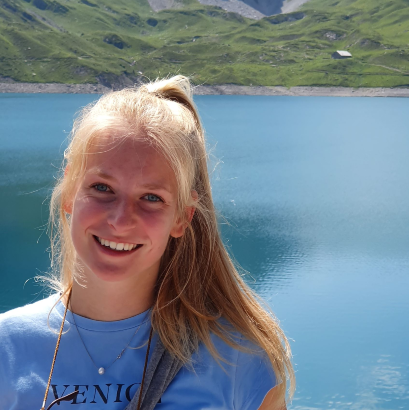Tessa Berg - Civil Engineering

Geotechnical engineers play a pivotal role in various infrastructure endeavours, from constructing embankments for new highways to conducting calculations for tunnel projects.
Why did you choose this programme?
I chose this programme because I did my BSc in civil engineering here, in Delft. I also liked the diversity of students and staff at the faculty. I chose the Geotechnical Engineering Track because of its fundamental character in civil engineering and the diversity of projects where geotechnical engineers can work. Geotechnical engineering is needed in every construction project: buildings, infrastructure, hydraulic structures and offshore.
What are you currently working on?
Currently I am working on my MSc thesis where I am looking into the installation of suction piles, large cylindrical structures which are used as foundations for offshore windmills and construction. These piles are typically installed on the seabed to provide stability and anchorage for various offshore structures, including oil and gas platforms, wind turbines, and subsea equipment. For the installation and design of the suction piles, the soil resistance plays an important role.
I am performing data analysis on installation records from sensors mounted to the suction piles and am analysing the soil resistance predictions. By comparing the predictions and actual encountered soil resistance, I hope to be able to say something about the accuracy of the prediction methods used and the suitability of soil for future suction pile installations.
What’s a highlight of the programme for you?
In the third quarter of the programme, we went to Belgium to understand the area’s geology and to visit a large infrastructure project. We also visited mining caves in Valkenburg (Netherlands).
In Belgium we visited the Oosterweel Link, which is part of the new ring around Antwerp. This large infrastructure project has some geotechnical difficulties since the ground is composed of a very stiff clay type with swell characteristics. This presents challenges in terms of foundation construction, design, and long-term stability. The excursion was a true highlight for me due to the practical insights we got by visiting different sites.
In the Netherlands, we learned about measuring and analysing the settlements of pillars inside the mines. This is crucial because the failure of the pillars could lead to the caves collapsing.
What do you hope to achieve?
Geotechnical engineers play a pivotal role in various infrastructure endeavours, whether it's constructing embankments for new highways, conducting calculations for tunnel projects, or designing foundations for houses, bridges, and offshore structures. My aim is to address the increasing demand for these endeavours. In the Netherlands, where numerous buildings are erected on soft soils, ensuring proper foundations is crucial for guaranteeing the safety and durability of structures.
Published 2024